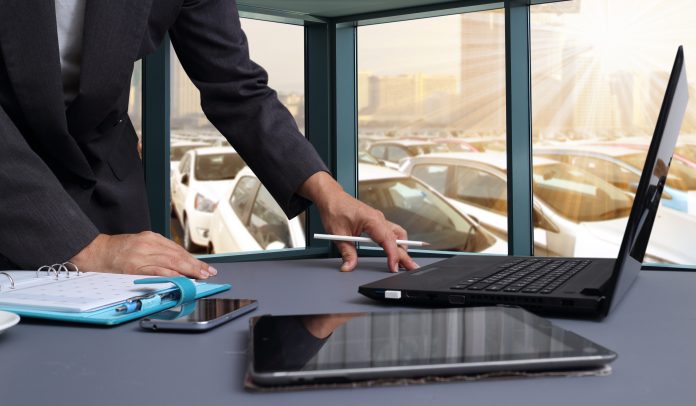
Electric vehicles, ride-sharing, Internet car shopping and self-driving vehicles have, in the past, seemed like distant storms to car dealerships: something happening far away on the horizon, but nothing to worry about at the door of the business. According to a recent Wall Street Journal article, however, these specters are already threatening the traditional small business dealership owner model.
“Small to mid-size dealer groups are selling their businesses to auto-retail giants or investment firms at a robust clip even as auto sales remain strong,” wrote the WSJ’s Adrienne Roberts. “The trend—highlighted by Warren Buffett’s entry into the dealership business in 2014—has gathered momentum as electric, shared and autonomous vehicles threaten to reshape the car business.”
Dealer adviser Kerrigan Advisors told the WSJ that between 2014 and 2018, about 1,000 dealerships in the U.S. will have been sold, most of them from smaller owners to large publicly traded companies. Other small owners are partnering with investment houses. Analysts say the rise in costs of running a dealership is the cause, and these costs are escalating in part because of a need to keep up with new technology and new business models.
With the new capital, dealerships will be better positioned to take advantage of new models such as subscription services, which blend vehicle leasing with renting, according to J.D. Power Cars. The first of these subscription models to launch was Book by Cadillac, which debuted as a pilot program in New York, Dallas and Los Angeles.
“Pitched as an exclusive membership program, you apply to join and if you are accepted, you pay a flat monthly fee of $1,800 for access to five of Cadillac’s higher-priced vehicles,” wrote J.D. Power’s Christian Wardlaw. “Everything is taken care of except for gas.”
Online car shopping and buying is also putting pressure on small dealerships to sell or partner. Becoming an “omnichannel” business – necessary in an era when most of the population is accustomed to online shopping — takes access to capital that smaller dealerships simply don’t have.
“Car-buying behavior is changing in ways that will force radical and disruptive change in auto sales,” according to Bain & Company. “Digital natives are becoming mainstream car buyers with completely new expectations, and older generations are picking up new habits.”
Already, NADA has estimated that dealer margins have shrunk significantly in recent years. The group has found that while dealers took 4.7 percent of the selling price of a new car 2009 (on average), that number slipped to 2.5 percent in 2017. Economies of scale, it’s believed, may be the only way to fend off further margin shrinkage. And with commercial real estate reaching a peak in value, many dealership owners are sensing that now is the time to sell.












